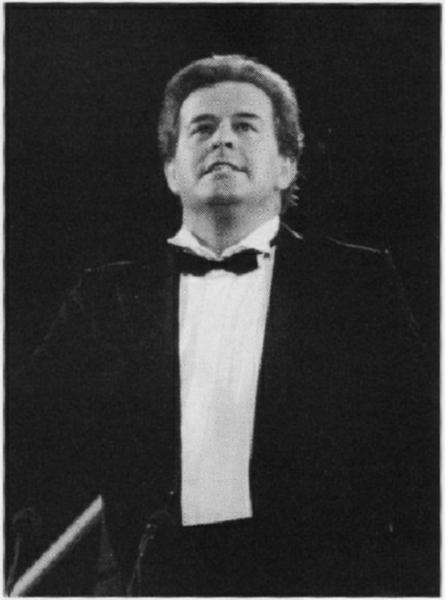Alberto Cupido
born 19 March 1948 Portofino
In RA format
The son of an opera singer, Cupido studied voice in Milano at the Conservatorio Giuseppe Verdi and at the opera
school of La Scala, and also in Siena. He made his debut in 1976 at the Teatro Margherita in Genova as Pinkerton, and quickly
embarked on a good career: Venice, La Scala, Maggio musicale in Florence, both at the Terme di Caracalla and the Teatro
dell'Opera in Rome, Arena di Verona, Torre del Lago, Torino, Bologna, Trieste, Piacenza, Vienna Staatsoper, Graz, Frankfurt,
Hamburg, Munich, Cologne, Deutsche Oper Berlin, Hannover, Stuttgart, Glyndebourne Festival, Brussels, Barcelona, Geneva, Zürich,
Paris Opéra, Strasbourg, Lyon, Toulouse, Marseille, Nice, Monte Carlo, San Francisco, Dallas, Montréal, Budapest,
Prague, Buenos Aires, Tokyo.
He had a very interesting repertory: Edgardo, Fernand, Pollione, Enzo Grimaldo, Corrado in Il corsaro, Alfredo, Duca,
Macduff, Riccardo,
Gabriele Adorno, Stiffelio, Don Carlo, Rodolfo in Luisa Miller, Rodolfo in La bohème, Rinuccio, Luigi,
Cavaradossi, Calaf, Zandonai's Romeo, both Boito's and Gounod's Faust, Maurizio, Lionetto de' Ricci in Cilea's Gloria,
Turiddu, Andrea Chénier, Giannetto in La
cena delle beffe, Hoffmann, Werther, Don José, Sigurd, Roland in Esclarmonde, Italienischer Sänger.
I heard Cupido on several occasions, and was never impressed;
rather, I remember a Luisa Miller at the Vienna Staatsoper where he excelled by excessive pushing, and a Traviata
where he cracked the final C of "O mio rimorso". But then, years later, in 2005, he sang the first Austrian performance ever of
La battaglia di Legnano, in a concert performance in the tiny provincial town of Ternitz, organized by the local
private association "Amici del belcanto" (an admirable association responsible for some exciting
and great operatic ventures) – and Cupido sang with so much joy, commitment and sincerity
that he alone made that evening really special, and outdid many, many of his technically smoother
but also blander contemporary tenor colleagues.
Reference 1: Kutsch & Riemens; reference 2,
reference 3
|
